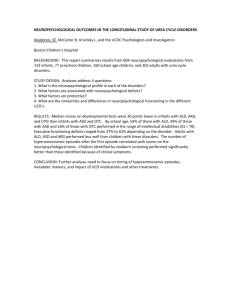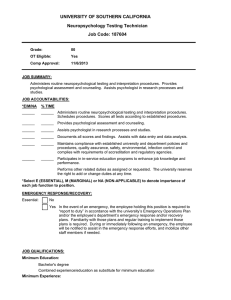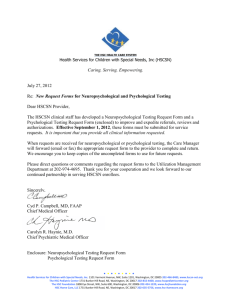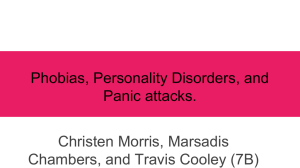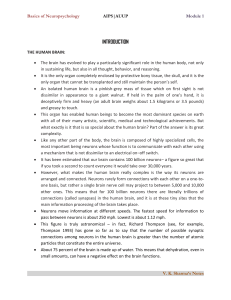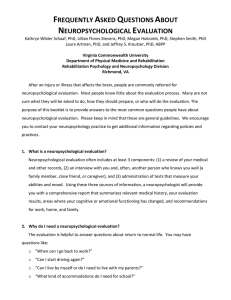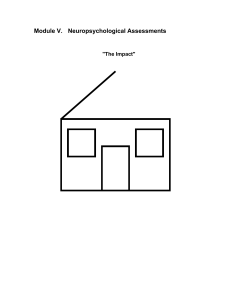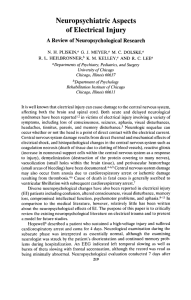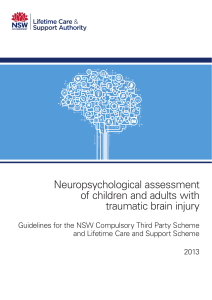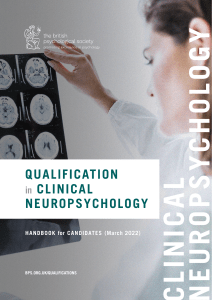Area of Emphasis Description of Area of Emphasis
advertisement
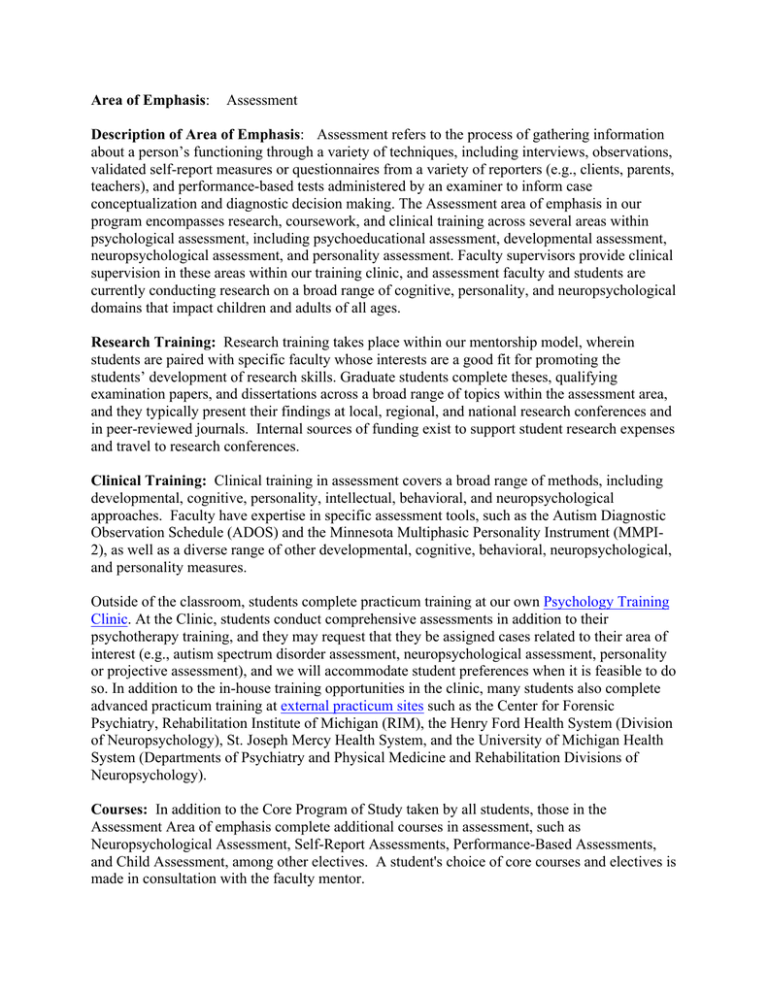
Area of Emphasis: Assessment Description of Area of Emphasis: Assessment refers to the process of gathering information about a person’s functioning through a variety of techniques, including interviews, observations, validated self-report measures or questionnaires from a variety of reporters (e.g., clients, parents, teachers), and performance-based tests administered by an examiner to inform case conceptualization and diagnostic decision making. The Assessment area of emphasis in our program encompasses research, coursework, and clinical training across several areas within psychological assessment, including psychoeducational assessment, developmental assessment, neuropsychological assessment, and personality assessment. Faculty supervisors provide clinical supervision in these areas within our training clinic, and assessment faculty and students are currently conducting research on a broad range of cognitive, personality, and neuropsychological domains that impact children and adults of all ages. Research Training: Research training takes place within our mentorship model, wherein students are paired with specific faculty whose interests are a good fit for promoting the students’ development of research skills. Graduate students complete theses, qualifying examination papers, and dissertations across a broad range of topics within the assessment area, and they typically present their findings at local, regional, and national research conferences and in peer-reviewed journals. Internal sources of funding exist to support student research expenses and travel to research conferences. Clinical Training: Clinical training in assessment covers a broad range of methods, including developmental, cognitive, personality, intellectual, behavioral, and neuropsychological approaches. Faculty have expertise in specific assessment tools, such as the Autism Diagnostic Observation Schedule (ADOS) and the Minnesota Multiphasic Personality Instrument (MMPI2), as well as a diverse range of other developmental, cognitive, behavioral, neuropsychological, and personality measures. Outside of the classroom, students complete practicum training at our own Psychology Training Clinic. At the Clinic, students conduct comprehensive assessments in addition to their psychotherapy training, and they may request that they be assigned cases related to their area of interest (e.g., autism spectrum disorder assessment, neuropsychological assessment, personality or projective assessment), and we will accommodate student preferences when it is feasible to do so. In addition to the in-house training opportunities in the clinic, many students also complete advanced practicum training at external practicum sites such as the Center for Forensic Psychiatry, Rehabilitation Institute of Michigan (RIM), the Henry Ford Health System (Division of Neuropsychology), St. Joseph Mercy Health System, and the University of Michigan Health System (Departments of Psychiatry and Physical Medicine and Rehabilitation Divisions of Neuropsychology). Courses: In addition to the Core Program of Study taken by all students, those in the Assessment Area of emphasis complete additional courses in assessment, such as Neuropsychological Assessment, Self-Report Assessments, Performance-Based Assessments, and Child Assessment, among other electives. A student's choice of core courses and electives is made in consultation with the faculty mentor. Affiliated Faculty and Specific Research Interests: Carol (Ketl) Freedman-Doan, Ph.D. (Child & Adolescent Clinical Psychology) – Childhood stress and its impact on executive functioning, working memory, and attention; parenting factors and parent-child relationships that influence child and adolescent outcomes. Renee Lajiness O’Neil, Ph.D. (Pediatric Neuropsychology) – Neurodevelopmental disorders such as Autism Spectrum Disorders, language based learning disability, and ADHD; cognitive, behavioral and neural correlates of these disorders using neuropsychological measures and functional neuroimaging such as magnetoencephalography (MEG); early identification of risk and resilience factors in neurodevelopmental and acquired disorders of childhood (traumatic brain injury and cancer). Catherine Peterson, Ph.D. (Pediatric Psychology) – Neurocognitive and psychological issues associated with chronic medical conditions in childhood such as childhood cancer, type 1 diabetes, and recurrent pain; psychological aspects of childhood food allergies; psychological outcomes, quality of life, family burden, and family intervention in pediatric medical populations. Adjunct Clinical Supervisors: Erin Mark Neuropsychological Assessment Judith Shazer Personality Assessment
